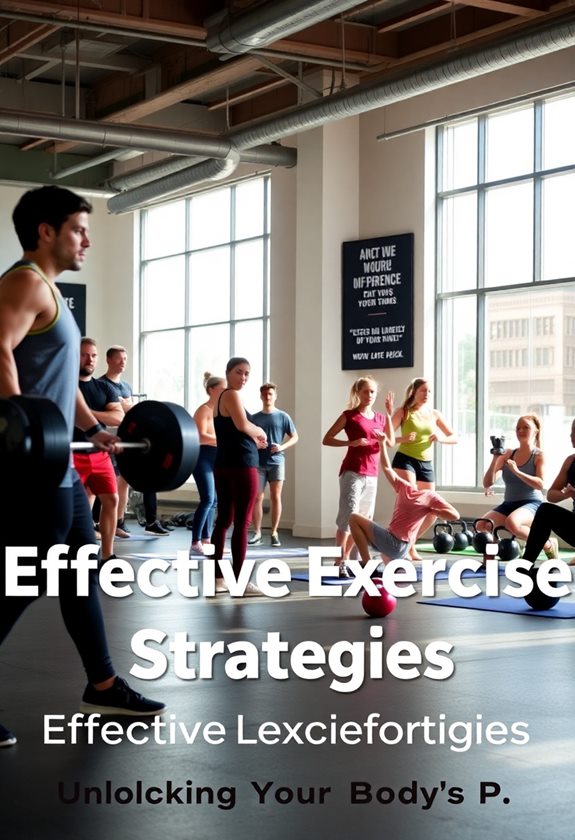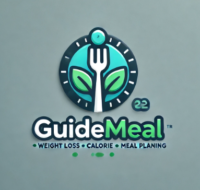Transforming your body means understanding effective weight loss science. First, metabolism is key; a faster one burns more calories even when you're resting. Have you considered how your muscle mass affects this? Next, nutrition matters—whole foods can curb cravings and boost your energy. Ever think how meal prepping might help? When it comes to exercise, mixing cardio with strength training keeps it fun and effective. Don't believe the myth that skipping meals helps—this can actually slow you down! Finally, creating a personalized plan that fits your life is essential. Curious about the easy steps you can take? 😊
Key Takeaways
- Understanding and optimizing metabolism through strength training and active lifestyles can enhance calorie burning for effective weight loss.
- Prioritizing nutrient-rich whole foods over trendy diets supports energy levels and reduces unhealthy cravings, promoting sustainable weight loss.
- Combining cardio with strength training and incorporating interval workouts can maximize fat loss and improve overall fitness efficiently.
- Debunking common myths, like the necessity of skipping meals or avoiding carbs, is crucial for establishing effective and realistic weight loss strategies.
- Creating a personalized weight loss plan with enjoyable foods and activities, while allowing for flexibility, ensures adherence and long-term success.
Understanding Metabolism

Metabolism is an essential player in your weight loss journey, influencing how your body converts food into energy. Ever wonder why some people can eat anything and stay slim, while others struggle? It often comes down to metabolism!
Metabolism refers to the chemical processes that keep your body alive and functioning. Think of it as your body's engine, burning calories to fuel your daily activities. The faster your metabolism, the more calories you burn, even when you're resting. Integrating structured meal planning with your exercise routine can further enhance this process, ensuring that you fuel your body effectively.
You might be surprised to learn that factors like age, muscle mass, and genetics affect your metabolism. As you get older, your metabolism may slow down. That's why it's key to maintain muscle mass through strength training.
So, how can you boost your metabolism? Simple changes can help! Staying active, drinking water, and getting enough sleep can all make a difference. Have you noticed how a good night's rest leaves you feeling energized?
Incorporating these tips into your routine can rev up your metabolism. Remember, every little bit counts toward your weight loss goals! Keep moving, stay curious, and enjoy the process.
The Role of Nutrition
Nutrition plays an essential role in your weight loss journey, directly impacting how effectively your metabolism functions. Have you ever thought about what you eat and how it affects your body? The food you choose helps fuel your workouts and daily activities. Proper meal preparation is vital as it enhances the effectiveness of an active lifestyle, ensuring that you have structured meals that regulate your metabolism and control hunger.
Eating whole, nutrient-rich foods—like fruits, vegetables, lean proteins, and whole grains—can boost your energy levels and keep you feeling full longer. This means fewer cravings for junk food! 🤩🍕 But what about those trendy diets? They might seem tempting, but the key is to find a balanced approach that works for you.
It's not just about cutting calories. Instead, focus on eating the right kinds of calories. Have you tried meal prepping? It can save you time and help you make healthier choices throughout the week.
Effective Exercise Strategies

When it comes to shedding pounds, incorporating effective exercise strategies is essential. You might wonder, "What exercises should I focus on?" Start with a mix of cardio and strength training. Cardio, like running or cycling, gets your heart pumping and burns calories. Strength training, using weights or bodyweight exercises, helps build muscle, which in turn burns more calories even at rest. To support your fitness journey, consider incorporating structured meal planning, which can help manage calorie intake and prioritize healthy food choices, ultimately enhancing your workout performance and recovery the power of meal planning.
You should aim for at least 150 minutes of moderate activity each week. That's just 30 minutes a day, five days a week! Can you squeeze that into your schedule?
Don't forget to choose activities you enjoy. Love dancing? Try a Zumba class! Prefer the outdoors? Go for a hike! When you enjoy what you're doing, you're more likely to stick with it.
Also, mix things up. Variety keeps your workouts exciting and challenges your body. Ever tried interval training? It's a great way to boost your fitness in less time.
Common Weight Loss Myths
You might be surprised to learn that not everything you hear about weight loss is true. For example, many people believe that skipping meals helps you lose weight. But did you know that it can actually slow down your metabolism? By not eating, your body thinks it's starving and clings to fat instead!
Another myth is that carbs are the enemy. You may wonder, "Can I ever eat bread again?" The truth is, whole grains are important for energy and can be part of a healthy diet. It's all about balance.
You might also think that expensive supplements are necessary for weight loss. But often, simple lifestyle changes work better. Have you tried drinking more water or adding more fruits and veggies to your meals? These small steps can have a big impact!
Creating a Personalized Plan

Creating your personalized weight loss plan is essential for achieving lasting results. Everyone's body is different, so a one-size-fits-all approach just won't work. Think about what you enjoy and what fits your lifestyle. Have you ever tried a diet that felt too strict? It probably didn't last long. Instead, focus on what you can maintain.
Here are some key steps to include in your plan:
- Set realistic goals: Aim for a steady weight loss of 1-2 pounds a week.
- Choose foods you love: Eating should be enjoyable, not a chore!
- Mix in exercise: Find activities you enjoy, whether it's dancing, walking, or swimming.
- Track your progress: Use a journal or app to see how you're doing.
- Stay flexible: Life happens! Adjust your plan as needed without feeling discouraged.

